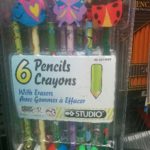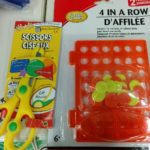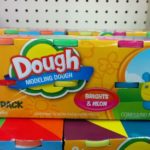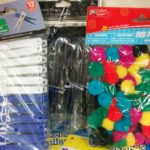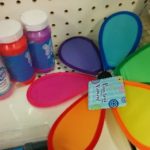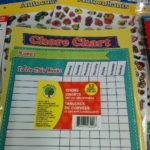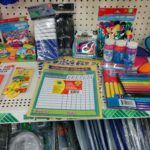Blog Categories
Search Blog
Blog Categories
Occupational Therapy at the Dollar Store
My Favourite Finds and How to Use Them
There are so many amazing therapy products available today that have been made with every diagnosis, disability and concern in mind. While these items can be wonderful tools, they are often expensive and made for very specific uses. After taking a closer look, I discovered many of these products purposes and goals can be addressed with much more accessible options. Therapists everywhere have discovered the many wonders of dollar stores to find cheaper versions of brand name products, as well as some objects that can be turned into therapeutic tools with a creative mindset. Here are just some of my favourite dollar store finds that I use all of the time and what they can be used for.
Handwriting
Easily one of the most common reasons a child is referred to occupational therapy (OT) services is for handwriting. A big part of improving handwriting is often developing a functional pencil grasp so a child uses their hand most effectively when writing. While special pencil grips are an effective tool to use to help practice pencil grasp, there are some great dollar store options that can be useful as well. Using pencils with heavy/weighted erasers at the top helps to encourage both the right placement of fingers and the pencil. Once a child starts figuring out the correct ways to use their first three fingers to hold their pencil, they are often unsure of how to position the other ones. Holding a small pom-pom ball with their ring and pinky fingers will help keep those fingers in place to help support the weight of the pencil. Another great trick when working on pencil grasp is to practice using different sized writing utensils. Short and thick markers, as well as small pieces of crayons and chalk, all can help encourage a great pencil grasp.
Fine Motor
Anything that a child does with their hands uses their fine motor skills, which includes both the strength of all of their hand muscles, and how they all work together to coordinate different movements. There are a variety of different tools and games that can be used to practice fine motor skills, and these can include products that are found in some different aisles such as kitchen tools, organization and crafts. A common activity used in OT for fine motor development is using different types of putty, and while in the clinic these are often therapy-grade products, using dollar store putty is a great home practice option. You can practice rolling, pulling and squishing putty by making shapes, building animals and hiding different objects to find inside the putty. A great tool for practicing fine motor coordination is clothes pins, which can be used to pick up small objects or pin around a paper plate – all helping give our hand muscles that help us pinch a good workout. Dollar stores also have a large variety of basic games that use small pegs, tokens or other pieces, and manipulating them in slots or around a board is a great way to practice coordinating those fingers to work together. A special mention for this category is scissors – you can often find scissors with adjustable springs that can be set to have the scissor automatically open after each time they are closed. These are very helpful when working on scissor skills when a child hasn’t quite figured out how to coordinate both the open and close movements or has weaker finger muscles.
Self-Regulation and Sensory
One of the best skills to learn for children whose energy levels or emotions change greatly throughout the day is deep breathing. This can help slow their heart rate, calm them down and allow them to focus on the task at hand. A great way to practice breathing is to use bubbles – if a child breathes slowly and evenly they will create bubbles but if their breath is shallow and quick, no bubbles will appear. There are also some other fun finds that can help with this skill such as windmills – the longer the exhale, the more the windmill spins! A special mention for this section would be squish/stress balls which can be found in the toy section and further help calming emotions and energy, as well as encourage focus.
Motivation
All of these activities can be lots of fun, but sometimes kids need a little extra help staying motivated during their therapeutic practice. While I strongly believe in the power of positive verbal encouragement to motivate kids to challenge themselves and develop their skills, I have found when they need a little extra push or incentive, a sticker can go a long way. Dollar stores have an unbelievable selection of stickers, and giving a sticker away at the end of a practice session or as an incentive for a particularly tough challenge, can make a big difference. Stickers can also be used on behaviour/chore charts which can be found at the dollar store. Different tasks can be added depending on what you are working on, and whether it is different steps to the morning routine, or chores to complete, small stickers can be added along the way.
These ideas are just the tip of the iceberg of the wonderful things you can find at the dollar store! I highly recommend heading over to your local store to take a look at what you can find. Remember, each store has different items, and inventory is always changing so visit regularly. This is a great way to experiment with different products to see what works and what doesn’t for your child without a big cost commitment. Also make sure to take your kid with you so they can take part in the fun, and by allowing them to choose colours and getting them involved as much as possible, they will quickly get excited about their new games. At home practice is essential for therapy to be effective and for the strategies and tools to be applied to settings and situations outside of the clinic, so head to the dollar store and find your favourites today!


